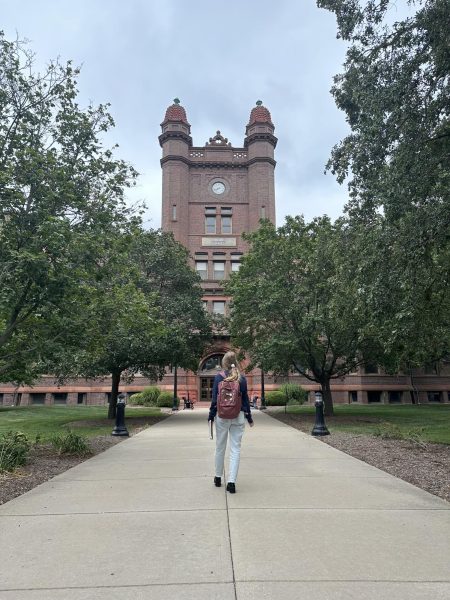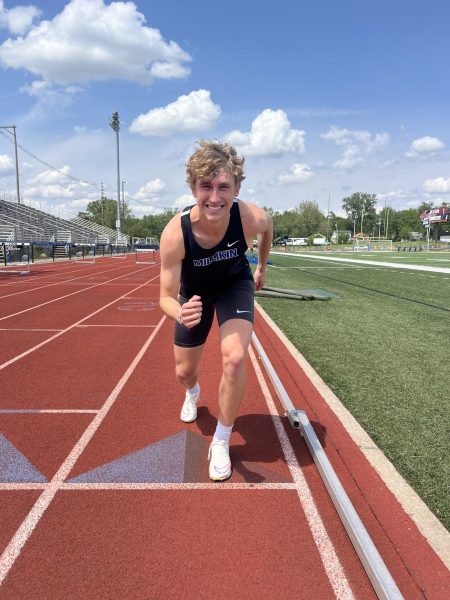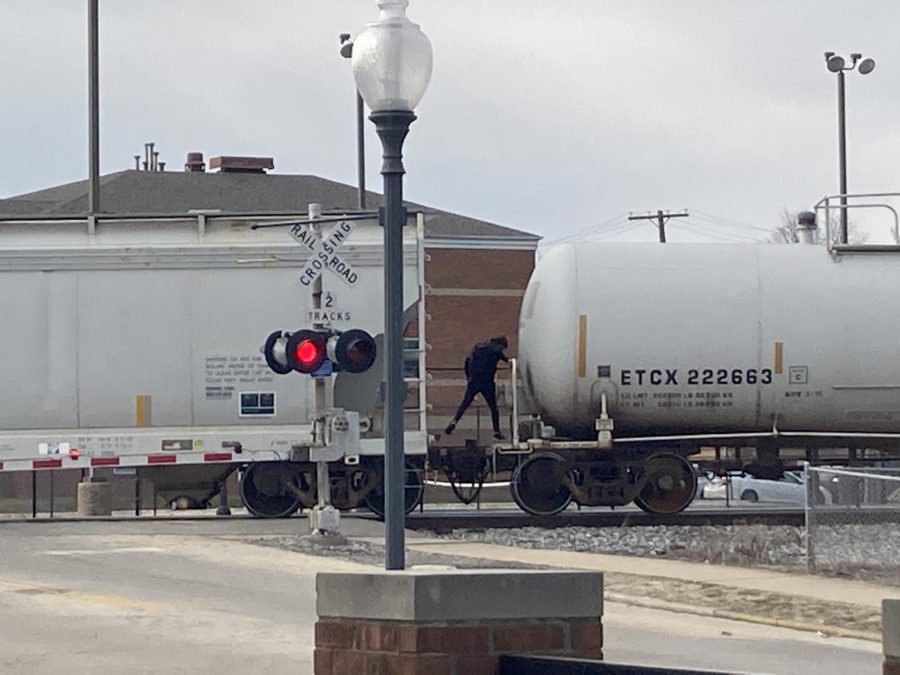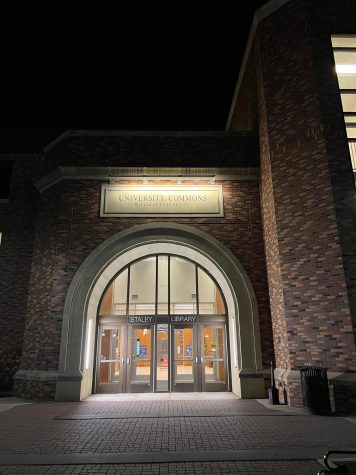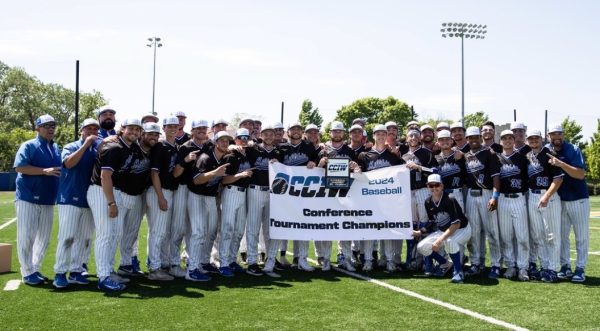Students Take Risks Crossing Tracks to Class
Millikin students face a difficult choice when a train stops at the Wood Street crossing. They can jump the train and face fines and even arrest, or they can choose to walk the extra distance to the Main Street underpass.
While Millikin has a long history with the railroad, many students see it as a disruption to their day. As the years pass, trains get longer. The trains are becoming so long that they stop over the Wood Street crossing. This blockage does not concern first-year students, as their dorms are on the East side of campus. For students living in The Woods, however, the train creates a significant disruption as they walk to their classes.
Jake Schumaker, a junior computer science major, said that while the trains are cool to have around campus, they are also a safety hazard to the student body.
“I do find it kind of a pain when trains repeatedly stop on the tracks and prevent students from getting to their class causing an extra-long walk,” Schumaker said.
Because of the stopped trains on Wood Street, many students must take an alternate route to their classes. Some daring students even make the dangerous effort to climb over the train cars. While climbing over the freight cars may be a faster way to get to class, they risk their safety in the process.
Hailey O’Malley, a senior Biology major, said she received the most harassment from locals when she walked along Oakland Avenue and Main Street.
“I usually try to avoid that area with all the sketchy stuff that happens over there. It makes me uncomfortable,” O’Malley said. Many students like to avoid this area of campus, so they chose to climb over the train to stay away from Main Street.
Chris Ballard, the head of Millikin’s Public Safety office, also sees concern with the train going through campus.
“It has been more prevalent over the last year or so with longer, not stalled but stopped trains staying for extended durations of time,” Ballard said.
He explained that Millikin has reached out to the railroad company, but has received little to no response. For the student body’s safety, Ballard said that he would like to see students use the underpass.
“That’s why they’re designed that way,” he said. “That’s what they’re for.”
Climbing and crossing over trains is an arrestable offense because the train tracks are private property. Students caught trying to race the train while the gates are down can be fined $250 for the first offense and $500 for the second.
“In my previous entity in the city of Champaign I’ve seen what happens when a pedestrian is struck by a train,” Ballard said. “It’s not a good thing.”
Schumacher said he did not know that climbing over the train could result in arrest. “I think it would be valuable for more people to know that, so more people don’t climb over the train,” Schumacher said. “It is most certainly worth the longer walk around campus than to climb over the train and possibly be arrested.”
The employees at Norfolk Southern are also frustrated with the long trains they must deal with on the job. Travis Atkinson, a former Norfolk Southern employee. saw many things during his 15years with the company.
“When I was on my last stint back in 2018 to 22 as a conductor and engineer, I think 10 to 12 thousand feet [of train] wasn’t uncommon,” Atkinson said. He believes Norfolk Southern does not consider that their Right of Way, a right of passage on strip of land granted for transportation purposes, passes through a college campus.
Millikin will find a way to work with Norfolk Southern, but it starts with students being safe around trains. Trains can be dangerous. The more students understand the risks, the better off they will be. It is important to follow all safety rules so everyone can make it to class safely.


